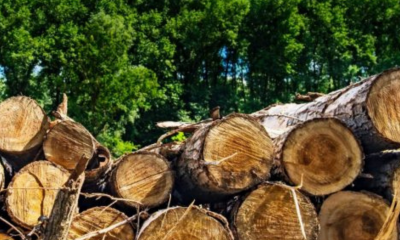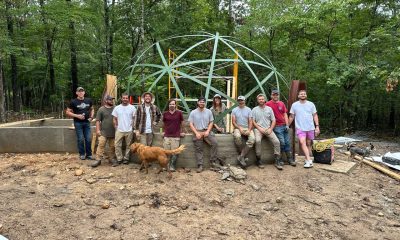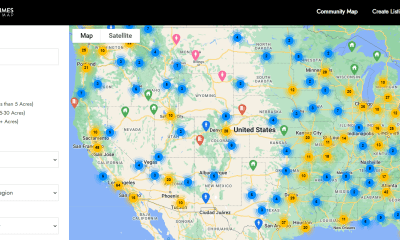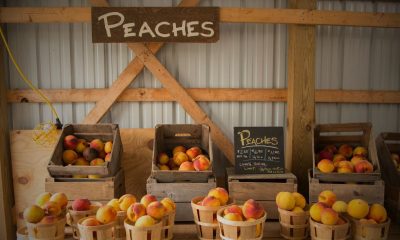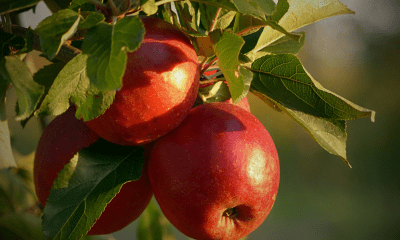Lifestyle
The Settlers of Catan (Beartaria)
Gathering for a 1-2 hour game of Catan is a common scene during snowy nights.
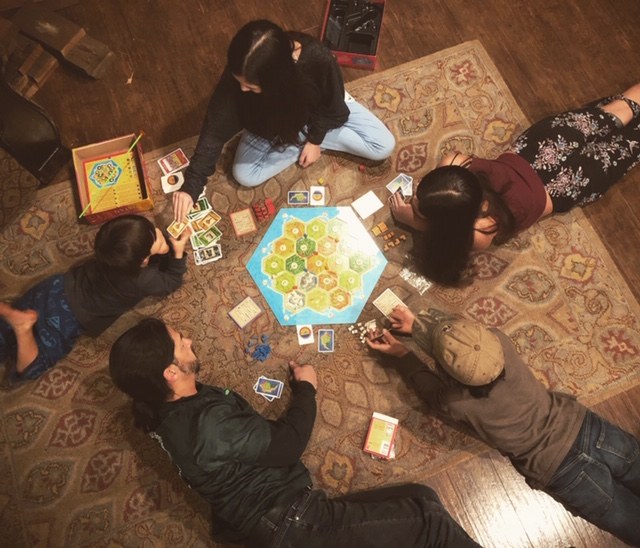
If you can’t be in Idaho building Beartaria, you can always gather around with your loved ones and build Catan. The Settlers of Catan is a board game that doesn’t sacrifice fun and entertainment when it comes to strategy play.
Imagine controlling a group of settlers trying to survive and thrive on the remote but rich Isle of Catan. There are many harbors and six distinct ecosystems spread out over the island. You must settle the land wisely in order to develop and build a crushing settlement such as Beartaria. But, it won’t be easy! There are many resources to gather, work to be done, and difficult personalities to deal with.
Catan is the perfect game, training the mind to begin interacting with the essentials required in building a successful settlements. All Bears, young and old, will love playing this interactive game for 3-4 individual players or teams. Not only will you have fun, but you will benefit from the strategic lessons learned in this amazingly well designed game. Isn’t that what we’re doing? We’re having fun learning, doing, and crushing while building Beartaria.
How to play Catan?
Each player or team in the game act as settlers who are establishing settlements on the island of Catan. The game begins by selecting land to help build settlements, cities, and roads as you continue to develop the island. The game board, which represents the rich, unsettled island of Catan, is composed of hexagonal tiles representing land suited for different resources. There are Harbors, Plains, Meadows, Mountains, Hills, Forests, and Deserts. Each region will excel in either raising/producing sheep, wheat, wood, brick, or ore. These resources are used in a variety of combinations to build, trade, and develop. The land cards are laid out randomly at the beginning of each game making every game unique and different.
As the game progresses, players roll the dice and earn the resources it takes to develop settlements. If you do not own land that produces the resource you need, you’ll have to trade with another player or team that does. This is where the game gets really interesting. You begin to learn how to barter with different personalities with different needs.
“Sometimes you want to be direct, other times you want to be a bit more cunning and discreet. One thing for sure is, unless you own land in all six regions, you will have to learn how to work with another settlement for trade.”
Now it’s not all strategy, trade, and hard work in finding success. Sometimes luck plays a role. Like real life, there is that certain type of person. Catan calls them the robber and it really forces drama into the game. Creating a settlement wouldn’t be realistic if you didn’t have at least one “must be nice” sentiment at play. This realistic twist to the game forces players to make tough decisions that will undoubtedly affects their relationships with the other settlers and their future goals.
Ultimately, the way to win at Catan is to develop enough settlements, cities, roads and special bonus cards to reach the required 10 Victory Points. The first player or team to reach 10 points wins the game.
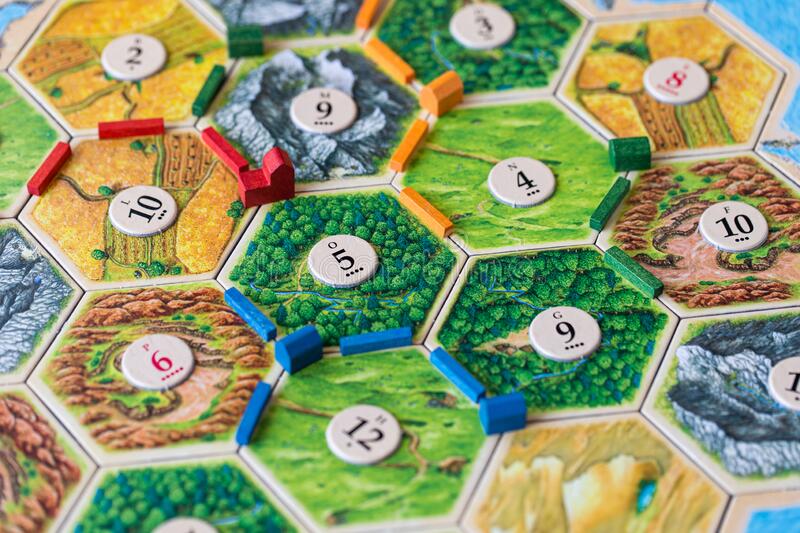
If you’re weaning yourself from Babylon this is the board game for you. Give The Settlers of Catan or any of the Catan Series board games a try. We’ve played it many times, especially when the snow starts to fall. This game is a ton of fun for all ages. The really young ones are great partners to help collect resources from others and protect your cards. When you aren’t building Beartaria, our outside crushing, give Catan a go with your loved ones. Have fun focusing on the simple things that make life great. You won’t regret it. Long live Beartaria!
Written By: PurelyLivingPapa Bear
IG@purely.living.homestead

Social media shows doomsayers, pessimists, and even truther-prepper types blasting out warnings of impending doom and gloom. You may feel the urge to fight if you can bear this without your emotions causing you to flee or freeze.
But what does fighting for your future mean? Unfortunately, much internet commentary directs your focus to what others are doing and how they affect you, calling for action to demand change. While this may have its place, it neglects the freedom we already possess and can inadvertently bypass our authority and control.
Here are a few simple things to think about that can help you fight against the future you don’t want, by building the future you do want.
Financial Future
Securing your financial stability is the cornerstone of building a successful future. This starts with becoming debt-free. Debt is a shackle that limits your freedom and ties you to a system you might not align with. Aim to clear your debts quickly and avoid taking on new ones.
Next, focus on land ownership. Owning land provides a place to call home and offers opportunities for self-sufficiency, such as gardening, raising livestock, or even setting up a small business. This autonomy can buffer against economic uncertainties and offer a sense of security.
Continually work towards a sustainable income. Whether through traditional employment, investments, freelancing, or entrepreneurial ventures, ensure your income sources are diversified and resilient to economic shifts. Build skills that are in demand and can be adapted to various roles. Financial independence is crucial in crafting a future you control rather than one external force dictates.
Education
Education is the foundation of personal and professional growth. Embrace self-study and continuous learning. The more skills and knowledge you acquire, the more adaptable you become in a rapidly changing world. Invest in personal improvement by setting aside time for reading, courses, and practical skill-building.
Homeschooling is another powerful tool. It allows you to tailor education to your family’s needs and values, ensuring your children learn what truly matters. Foster a love of learning in your household, emphasizing critical thinking, creativity, and practical skills over rote memorization.
Family Protection
Protecting your family goes beyond physical safety; it involves being a guiding force and a source of stability. We must also protect our families from negative and misguided influences. Be a leader to your children by setting a positive example. Teach them resilience, self-reliance, and the importance of moral values. Strengthen bonds with your siblings through support and cooperation, creating a solid familial network.
Honoring your seniors is equally essential. They possess invaluable wisdom and experience. Encourage intergenerational communication and respect, ensuring your family’s heritage and lessons are passed down.
Mindset
Your mindset is the driving force behind every action. Take ownership of your life and decisions, understanding that responsibility and accountability are keys to freedom. Respect your time and finances, recognizing them as finite resources that require careful management.
Develop a mindset of resilience and adaptability. Life is unpredictable, and being mentally prepared for challenges ensures you can face them head-on. Cultivate a positive outlook, focusing on solutions rather than problems. This proactive attitude will guide you in building the life you want.
Community Building
No one succeeds alone. Connect with people who share your values and vision. Building a community of like-minded individuals offers support, shared resources, and collective wisdom. Engage in activities and friendships that bring joy and complement your life.
We would like to take it a step further by saying, we don’t build the future we want as a reaction to the future we don’t want. We build, because we love, its fun and fulfilling. Our fight is to thrive, not to survive. Survival is a consequence of thriving. So aim high! Take control of your life, embrace self-responsibility, and connect with others on the same path.
Those looking to connect with a broader network should consider joining our Community app. It’s a platform dedicated to bringing together individuals who strive for independence. Whether you’re looking for advice, collaboration, or simply companionship on your journey, our thriving community is a valuable resource.
The power to shape your future is in your hands.
Lifestyle
Making Pine Needle Soda: A Fantastic Foraged Beverage
Pine needle soda, a truly one-of-a-kind beverage, has been savored worldwide for its zesty taste and health benefits.

Pine needle soda, a truly one-of-a-kind beverage, has been savored worldwide for its zesty taste and health benefits. It’s not just a refreshing drink, but also a creative use of natural ingredients. Here’s a simple guide to crafting this unique soda at home.
Pine needles are rich in antioxidants and vitamin C, which help boost the immune system. Different species of needles can offer different flavors, but it’s important to make sure the trees you harvest from are not toxic. Avoid using needles from yew, Norfolk Island pine, or Ponderosa pine. You should do additional research to insure you are staying safe.
The recipe I followed is easy and only requires a jar, strainer, and measuring cups. Start by identifying the pine tree you would like to harvest from; I used fir, tamarack, and white pine. Again, make sure you don’t use anything unsafe. You can choose to use new sprouted tips or even mature needles, which means you can also have fresh pine soda in the winter months!
You can scale up the recipe, but for reference, use the following:
- 2 Cups Pine needles
- 2 Cups Water
- 2-4 Tablespoons sugar (depending on sweetness you desire)
For the above measurements, I recommend using a quart jar. Begin by rinsing the needles, not too thoroughly, because the carbonation comes from natural yeast living on the pine needles. Add the sugar and water and seal the jar. Leave to ferment so it can become bubbly soda! Make sure to “burp” the jar every couple of days to release some of the gas so it does not build up and explode the jar! In 5-7 days, you will have soda, God willing.
Serve over ice and with some citrus if you’d like. Enjoy!
Lifestyle
Reconnect and Rejoice: Beartaria Times Weekly Challenge
Maintaining solid relationships with family and friends offers numerous benefits that enrich our lives in meaningful ways…

In our fast-paced world, losing touch with friends and family members who once played significant roles in our lives is easy. This week, the Beartaria Times invites you to participate in our heartwarming challenge: Reconnect with someone you haven’t spoken to in a while. Give them a call, ask how they’ve been, and rekindle that bond.
Maintaining solid relationships with family and friends offers numerous benefits that enrich our lives in meaningful ways:
1. Emotional Support: Close relationships provide a robust support system during tough times, offering comfort, advice, and a sense of belonging.
2. Improved Mental Health: Regular interactions with loved ones reduces feelings of loneliness and depression, contributing to mental well-being.
3. Increased Longevity: Studies have shown that strong social connections tend to help people live longer and enjoy better health.
4. Enhanced Happiness: Sharing moments, memories, and experiences with others brings joy and fulfillment, fostering a more positive outlook on life.
5. Personal Growth: Friends and family often challenge us to grow, learn, and become better versions of ourselves.
6. Creating Memories: Every interaction creates new memories, adding richness to our personal histories and offering stories to cherish for years to come.
We encourage you to take this challenge to heart and reach out to someone you miss. Whether it’s a friend from high school, a distant relative, or a former colleague, a simple phone call can reignite connections and brighten your day and theirs.
Once you’ve reconnected, share your stories and experiences on the Beartaria Times community app. Post about who you called, the memories you shared, and how the conversation went. Did you learn something new? Did you laugh about old times? These stories can inspire others to take similar steps in their lives.
Join us in this week’s challenge and celebrate the beauty of human connection. Let’s make an effort to nurture our relationships and remind those we care about that they are valued and remembered.
Happy connecting, Beartarians! We look forward to hearing your heartwarming stories.
Sincerly,
– The Beartaria Times Team
-

 Just Crushing2 weeks ago
Just Crushing2 weeks agoChristopher Gardner Completes First Dome Framing Project in Missouri: Exclusive Interview
-

 Just Crushing2 months ago
Just Crushing2 months agoBeartaria Ozark Campground Launches Community Forum!
-

 Just Crushing2 months ago
Just Crushing2 months agoMap it! – Discover Beartarians Living, Working, and Crushing Near You!
-

 Just Crushing2 months ago
Just Crushing2 months agoWhy Do We Feel So Free?
-

 Lifestyle2 months ago
Lifestyle2 months agoReconnect and Rejoice: Beartaria Times Weekly Challenge
-

 Reports2 months ago
Reports2 months agoReport: EF-1 Tornado Touches Down In The Ozarks
-

 Business2 months ago
Business2 months ago3000 Members In Our Business Group!: This Week On Our Community App!
-

 Wellness2 months ago
Wellness2 months agoBeartaria Times Member Shares History and Benefits of Haymaker’s Punch





